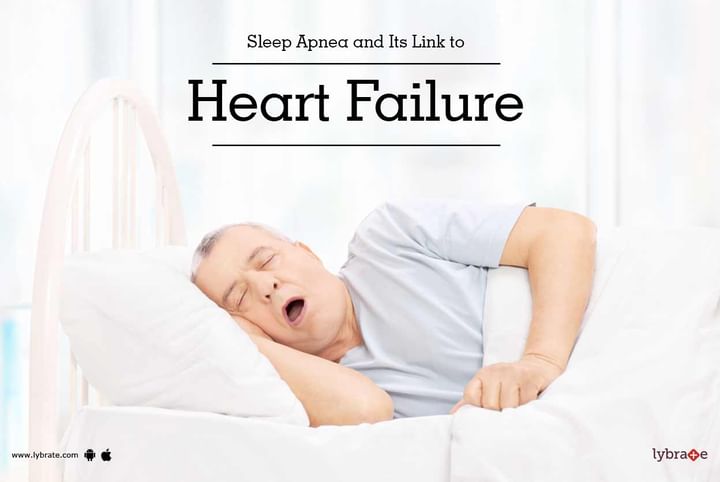Sleep Apnea and Its Link to Heart Failure
We're all guilty of making fun of snorers, but sometimes this snoring can be a symptom of sleep apnea. Sleep apnea is a condition where breathing is not continuous and may start and stop many times while asleep. This affects the quality of your sleep and in turn can affect many aspects of your health including your cardiovascular health. Here's how:
High Blood Pressure: When a sleep apnea patient's breathing stops, the oxygen levels in the blood also suddenly fall. This can increase your blood pressure. High blood pressure means that the heart muscles need to work harder to pump blood through the body.
Cardiomyopathy: As a result of high blood pressure, the heart walls may become thicker and the heart muscles become stiffer. This is known as Cardiomyopathy. As this condition worsens, the heart becomes weaker and is unable to maintain a regular rhythm. This can eventually lead to heart failure.
Arrhythmia: An irregular heartbeat is also known as Arrhythmia. This may also be related to the changes in the heart's structure that follow the drop in blood oxygen levels. In many cases, Arrhythmia has no visible symptoms and can often go undiagnosed. This can result in the formation of blood clots in the atria which can lead to a stroke.
Sleep apnea is easy to diagnose. If the doctor feels that you show symptoms of sleep apnea, you may be asked to stay on the hospital overnight and undergo a sleep evaluation. This tests a variety of body functions including brain activity, eye movements, heart rate, breathing patterns and blood oxygen levels.
Treatment for sleep apnea depends on the causes for this condition. If you are overweight, regular exercise and a change in diet can help you lose the excess weight and cure sleep apnea. Similarly, if your sleep apnea is triggered by an allergy, treating the allergy can help cure the sleep apnea. Other forms of treatment for sleep apnea may include:
Continuous Positive Airway Pressure (CPAP): This is a machine which pumps air into the body through a nasal mask. By keeping the pressure in the machine higher than normal air pressure the upper airway passages are kept open and hence the quality of your sleep is improved. An auto CPAP machine can modulate the air pressure such that it is higher when you inhale and lower when you exhale.;
Oral devices: Your doctor may suggest oral devices that allow you to keep your mouth open while you sleep. This is easier to use than CPAP machine but less effective. Surgery is the last resort when it comes to treatment for sleep apnea.



+1.svg)
